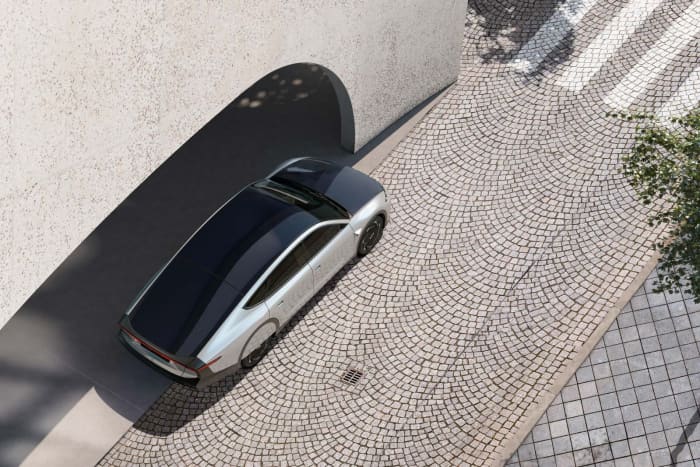This post was originally published on this site
Lately, there are more new electric cars than seems reasonable. Is there consumer demand for all these electric vehicles? It’s hard to say. Indeed, some electric cars will fall by the wayside. When we let the market decide, consumers opt to spend their money on the things that best suit their needs, and we end up with the best products and services.
Even so, some EVs really stand out; the Lightyear 0 is precisely that kind of electric car. More interested in the F-150 Lightning, Kia EV6, and Hyundai Ioniq 5? We don’t blame you; those are EVs you can get today. Well, you can order the Ford
F,
F-150 today, but it might be a while before it’s sitting in your garage. And that supply crunch might be exactly what upstarts like Lightyear need to enter the competitive electric car arena.

The Lightyear 0. It’s built for efficiency, not speed.
Lightyear
The car is called the “Lightyear 0.” Lightyear, the creator of Lightyear 0, says it’s created “the first production-ready solar car.” Currently, the company has filed 49 patents, has close to 500 employees, and earned 9 billion media impressions worldwide. Of course, none of this adds up to a compelling automobile, but Lightyear does seem further along than other fresh-from-the-drawing-board automakers.
Related: What GM’s idea for an EV with two charging ports says about the car market
Lightyear says it’s developing “scalable, grid-independent solar electric vehicles.” Sounds interesting. One way Lightyear accomplishes this is to make the entire upper surface of the car covered with solar cells. That’s about 54 square feet of surface area to soak up the sun. Lightyear says those solar cells can add “up to 70 km,” or about 43 miles, of driving range per day. This capability would be in addition to the mileage gained from the energy stored by plugging it in. For some reason, the company is downplaying the car’s ability to charge up by plugging in, even though that’s where the vehicle derives the bulk of its driving range. Company literature says, “Drive for months without charging.” Such a feat is technically possible thanks to those solar cells. Still, when plugged in, the Lightyear 0 has a stated range of more than 600 miles between charges. That’s really impressive.

The Lightyear 0
Lightyear
Designed for efficiency and not speed, the car goes from a standstill to 60 mph in 10 seconds, indicating that Lightyear is placing range over brisk acceleration.
Read: While car prices keep going up, these two electric cars just got a big price cut
Some of the EV’s range surely comes from its shape. Lightyear says the Lightyear 0 is “the most aerodynamic family car to date.” Using lightweight carbon fiber body panels and efficient electric motors placed in each wheel rather than on the axles also contribute. Production will be limited.
This story originally ran on Autotrader.com.


